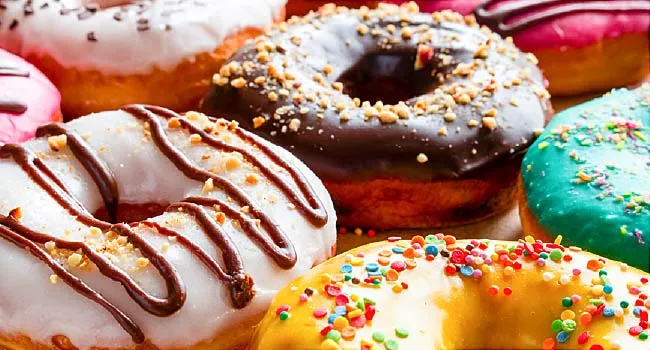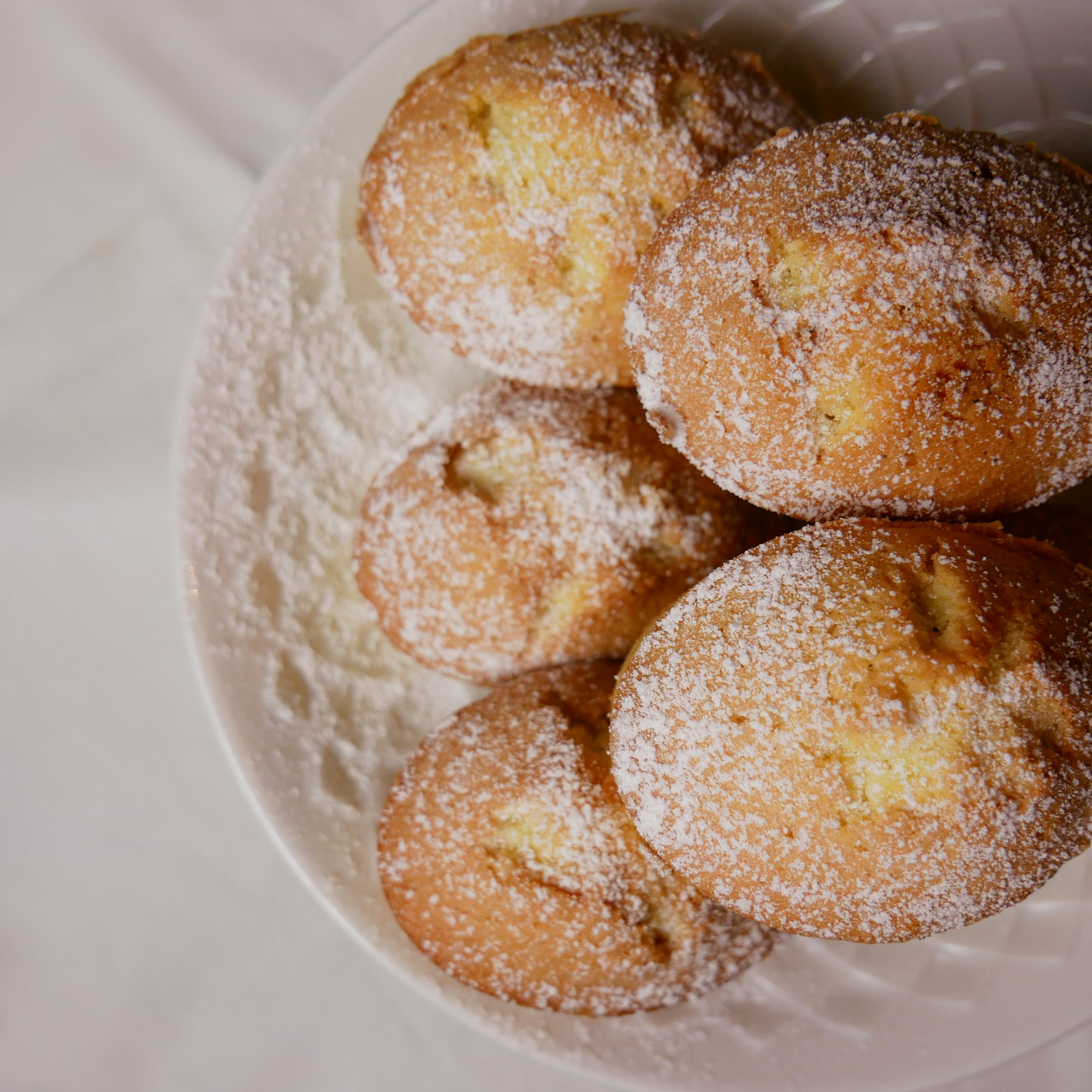
I cannot live without my sweets.
Fair warning to Dear Reader. This is a lengthy read about getting over sugar and what that can do for you. It's about a better life. If you want one, bear with me.
That's what I told myself for a very long time. I so love my sweets, my icing, my donuts, my cream-filled Krispy Kremes. I so love my sticky-sweet caramel popcorn, my Snickers bars at Halloween, my beloved chocolate almonds.
The icing-laden corner of the wedding cake, Southern pecan pie, hot with vanilla bean ice cream melting onto the plate.
You get it. I could go on.
When I acted like a good kid, I got sweets. When I felt bad, I sought sweets. For the forty years I had eating disorders, my love of sugar ate away all my teeth.
That's not all those masses of sugar were doing:

I was well on my way to inflammation, skin damage, liver damage, heart disease, diabetes. That's the short list. The SHORT list.
I thought my sugar craving was an addiction. However, that's not the case. As tempting as it is to claim that sugar is addicting, it isn't, not in that sense that the scientific community defines addiction:

From the article:
... addiction is a disease with three phases: substance bingeing, substance-seeking behavior and habitual substance use, and withdrawal. The DSM-5 defines it similarly but instead uses the experiences of certain symptoms as its criteria, including substance cravings and failing to fulfill daily roles because of substance use.
I had a habit. Not an addiction.

I had a preference for sweets. Virtually all infant's first taste preferences include sweetness. True for most of us, right from birth.
Since this is how we're wired, it isn't a significant leap to understand that this is both how and why industry food scientists manipulate our taste buds through sugar. More and more and more of it. Why even sweeter artificial substitutes populate the shelves and even more sugar keeps getting added to more foods to make them taste better.
Not only does language matter, how we use words to define ourselves gives us excuses or arguments to take or not choose to take actions which are better for our health. The use of the term addict implies victimization, helplessness in the face of urgent need.
That kind of language also gives us implicit permission to continue to do what hurts us, because, well, we just can't help ourselves. In some cases, with some substances and with certain people this might certainly be the case.
Nope. Not with sugar. Despite all the histrionic headlines, sugar is not as addictive as heroine or cocaine.
We can stop, or at least slow down, the sugar rush, and the wholesale loss of health, youth, vitality and lifespan. I did. So can you. Here's what I did.
This has happened in two phases, thirty-three years apart.
In 1987 I decided I was done with the extra 80 plus pounds I was carrying. I gave up the donuts, cakes, candies and cookies. It was bloody hard. However, the first step of giving up bread, which is riddled with sugar (all but the best, that is) was huge. My body thanked me by releasing thirty pounds in just a few weeks. That water had to have been in response to what my body read as poison.
Refined sugar, not the natural kind found in fruit, is poison. In small amounts, not so bad. But we don't ingest it in small amounts. We eat it by the pound. It's the most common ingredient added to foods. This pdf explains just how common how widespread its use actually is.
With rare exception, nearly every processed food product from peanut butter to cereals to so-called "healthy" granola bars, our foods are sticky with it. From the pdf article:
Two hundred years ago, the average American ate only 2 pounds of sugar a year. In 1970, we ate 123 pounds of sugar per year. Today, the average American consumes almost 152 pounds of sugar in one year. This is equal to 3 pounds (or 6 cups) of sugar consumed in one week! Nutritionists suggest that Americans should get only 10% of their calories from sugar. This equals 13.3 teaspoons of sugar per day (based on 2,000 calories per day). The current average is 42.5 teaspoons of sugar per day!

One way this can happen is how marketing companies and highly paid food/taste scientists find ways to mask the presence of sugar in our food. To that, there are some fifty-six names for sugar:

I seriously doubt that's all. The smarter we get about sleuthing out sugar sources in our foods, the better the scientists get at hiding and renaming it to suit our tastes and sell their products. And, hijack our health in the process.
The whole point is behind the Lay's© potato chip slogan: Betcha can't eat just one!
Rule number one: Always scan the can, the box, the food label. Always, always check to see where the sugar- however it's named- lands on the list of ingredients. The closer to the top of the list, the more the sugar. No matter how friendly sounding, how pretty the photos, how slick the marketing, sugar is sugar is sugar by any other name.
Here's a good educational piece on how to read food labels:

I traded my cookies for apples, my cakes for pineapple and mango, my treats became grapes, blueberries and strawberries.
Among the first things that happened when I trade my beloved donuts and chocolate for fruit (among other lifestyle changes) was that over the steady course of a year, I dropped 85 pounds. Not just that, while I had eating disorders for years afterwards, I simply didn't consume the same sugar until this year under Covid.
The result was, up to and including January 2011 when I finally, at long last, dumped those disorders, that my body kept improving. I had tons more energy. I only indulged in sugars on occasion, and was able to have treats in the house while trusting that I could control my natural cravings. The weight stayed off. I've also aged far less slowly than other women my age. Have more energy, more enthusiasm, more love of life.
Here, with the proviso that the beginning of this otherwise most helpful article perpetuates the addiction to sugar myth, is what happens when you and I quit so much sugar:
:format(jpg):extract_cover()/https%3A%2F%2Fpocket-syndicated-images.s3.amazonaws.com%2Farticles%2F4253%2F1588447345_01-26.jpg)
From the article:
Imagine this: “You will be so far away from the habit of eating sugar that you will not only not want it, but you won’t even be able to look at it,” says Wolfe. Gottfried adds that when you have stable blood sugar levels, you’ll find weight stays off, especially that stubborn belly fat. More important, you’ll be overall healthier: Six months without refined sugar will decrease your risk of type 2 diabetes, cardiovascular disease, and early aging, she says.
On a surface level, skin quality and reduction of acne, irritation, and fine lines can be dramatic when sugar is eliminated from your daily diet. Even better, you will see a reduction in overall risk of preventable diseases, like diabetes, as well as heart attack and stroke. Not to mention, you’ll also increase your quality and length of life. Seriously—we’re not sugarcoating it.
Never say never again
The last two years have been devilishly difficult. Like so many of us, I turned to sweets for comfort, for their historical meaning in my life. My weight went up, my anxiety spiked, and my face began to age again. I never went back to previous levels but the supplies of chocolate almonds and the presence of donuts increased. And my health suffered with the rise of both. It wasn't just the weight gain. My body and mind slowed down.
Thirty-two years of successful sugar restriction and I was back in the grip. Big time. This time a harder battle, with more to lose. At 66, poisoning myself at this point has bigger consequences.
A kidney stone attack forced the issue. Long story short, between the kidney stones and interstitial cystitis, I had to once again overhaul my diet. Sugar wasn't the only problem, but it was part of it. The end result, this year I dropped any and all sugars but for a little honey and what fruits and stevia can provide. I had to give up strawberries, pineapple, and a great many beloved fruits that had replaced my sugar habit. I had to change the kinds of sweeteners I loved. Forfeit most tea and coffee, which for me were little more than excuses to have sugary cream far too many times a day.
Again, there was a gradual and powerful payoff.

The additional weight sloughed off. The lines on my face smoothed out more. I got more vitality back. The less sugar I consumed, same as before, the better my body functioned. My body healed, my mind healed, my mood improved. It's always been the case: reduce the poison, enjoy the rewards. It's the same with alcohol, it's the same with anything we ingest that isn't kind to us. The problem is that so many of those things are delicious, delightful, and often anesthetize us to those things that are painful to face.
Stopping your sugar intake is not a panacea for every ill. Nor am I recommending that you stop eating sugar entirely. More so, that we simply educate ourselves on where the sugars exist (A 1.5-ounce shot of creme de menthe contains a whopping 21 grams of sugar) and how to reduce them. You and I may love our coffee, but we are wiping ourselves out with a Starbucks grande gingerbread coffee frappuccino with skimmed milk, which comes in at 68.7 grams of sugar.
The American Heart Association recommends that an adult woman limit her sugar intake to 25 grams a day. You see where we are. You see what we’re doing.

Is it worth it? I can't answer that for you. I've had to give up many things I love. Many things that give me pleasure, comfort and joy. I can't have eggnog anymore. Well, okay, I could, but I'm not willing to hurt myself with that kind of food. When people keep saying to me I'm so lucky, that I have it so easy, kindly, will you just stop?
There's nothing particularly easy about giving up what you love. Nothing easy about forfeiting flavors and delights that return you to your sense of home and family. Being able to share in foods that others love. Not being able to join in.
Nothing a damned bit easy or lucky about any of it.
But is it worth it?
Only you can answer that. As we head into the holiday season with all the stresses that being apart from those we love on top of dealing with the empty chairs of those we lost, I would ask us to consider whether this time around, the moderation might well be worth it. A little more self care so that we can better care for those who are around us. At least for me, that is indeed an act of love.
And yes. It's worth it.




Comments powered by Talkyard.